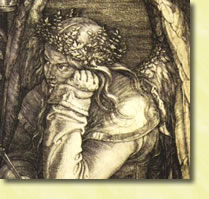 T
T
his is the third essay in a series of responses to the Anglican Diocese of the Living Word’s “Response to Women in Holy Orders.”
In an essay I wrote a while ago, I laid out what I called the “Tradition Challenge.”
I have argued that Evangelical Complementarians and Catholic Sacramentalist opponents to women’s ordination represent innovations to the historic tradition. Their advocates insist that they do not, and are simply following the historic tradition. My challenge:
Provide an actual historical reference from the Christian tradition that corresponds to what I have called the Complementarian or Sacramentalist positions. It is not enough to provide some individual positive statement about women mentioned by a Patristic, Medieval, or Reformation author.
There has been a kind of response to the “Tradition Challenge” by four writers from the Diocese of the Living Word in their Response to the essay “Women in Holy Orders,” written by myself and Bishop Grant LeMarquand. They state:
[LeMarquand and Witt] claim that the historic reasons for opposition to the ordination of women depend on the presupposition of ontological inferiority. That is demonstrably untrue. The unifying reason, found in every source that we have examined, is the conviction that Holy Scripture forbids the ordination of women. This reason does not require the ontological inferiority of women, unless one concludes that Scripture teaches the inferiority of women (and it is our conviction that it does not).
In the “Tradition Challenge,” I laid out the “traditional argument” against women’s ordination, and provided evidence for each one of its key propositions:
The Ontological Deficiency Claim
(A) Women are less intelligent, more emotionally unstable, and more subject to temptation than men.
The Exclusion by Nature of Subordination Claim
(B) Ordination necessitates exercising authority over others, particularly teaching and speaking in an authoritative manner. Women cannot be ordained because they are necessarily subordinate to men, and therefore cannot execise authority in this manner. This is primarily an exclusion from women exercising any authority whatsoever over men, and only secondarily a specific exclusion from ordination.
The Inherent Correlation Claim
(C) Proposition (B) is a direct corollary or consequence of Proposition (A). Women are necessarily subordinate to men, and cannot exercise authority over them because of an ontological incapacity located in a deficiency in reason, emotional instability, and susceptibility to temptation. Because of this ontological deficiency, they cannot exercise authority over or teach men, and so cannot be ordained.
I concluded: “Any argument against women’s ordination that does not include all three propositions is not the traditional argument, but an innovation.”














